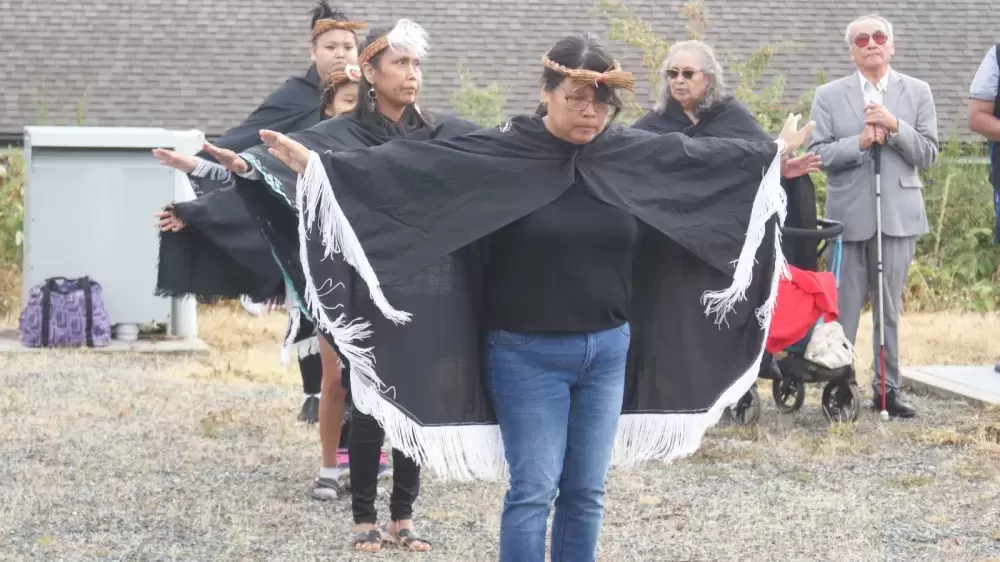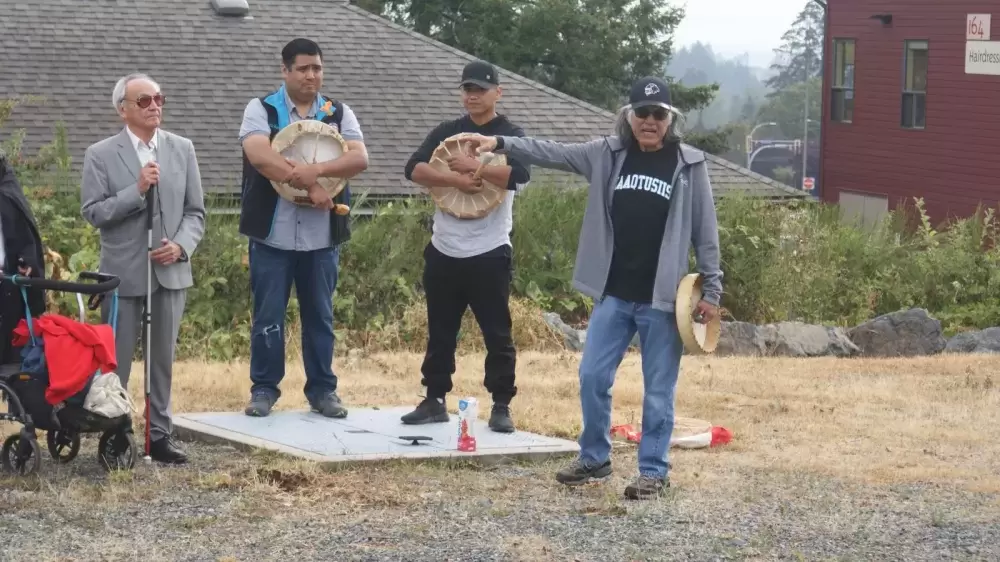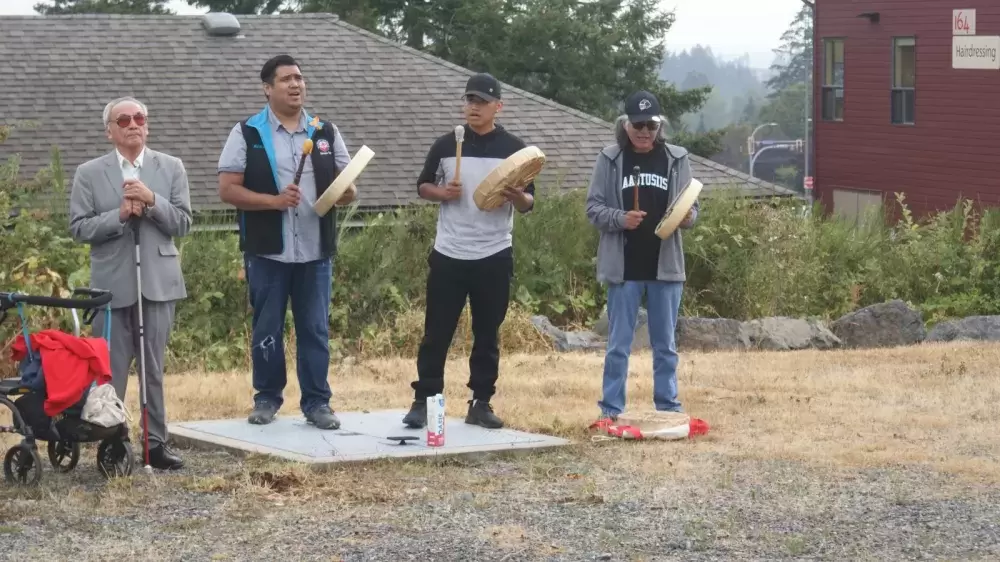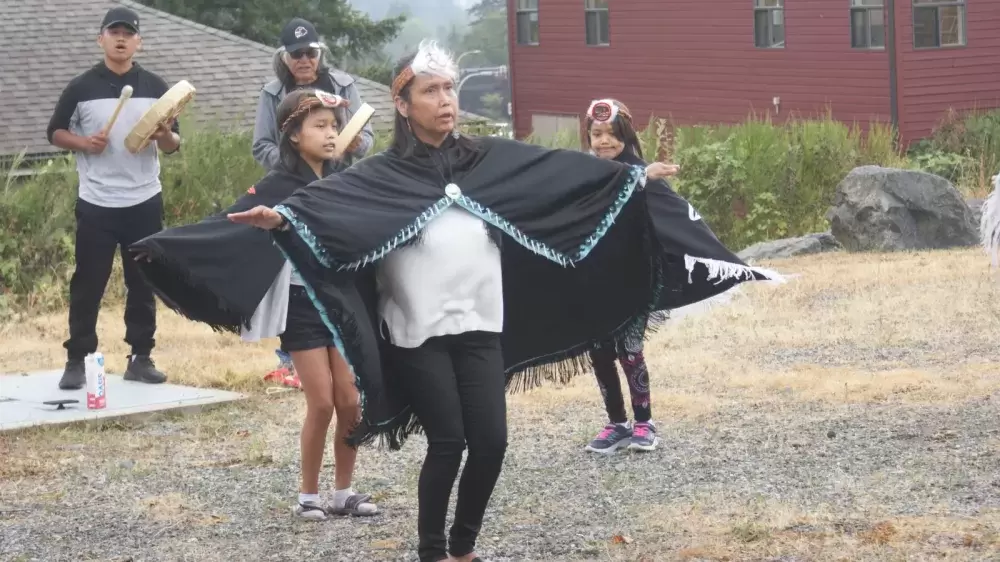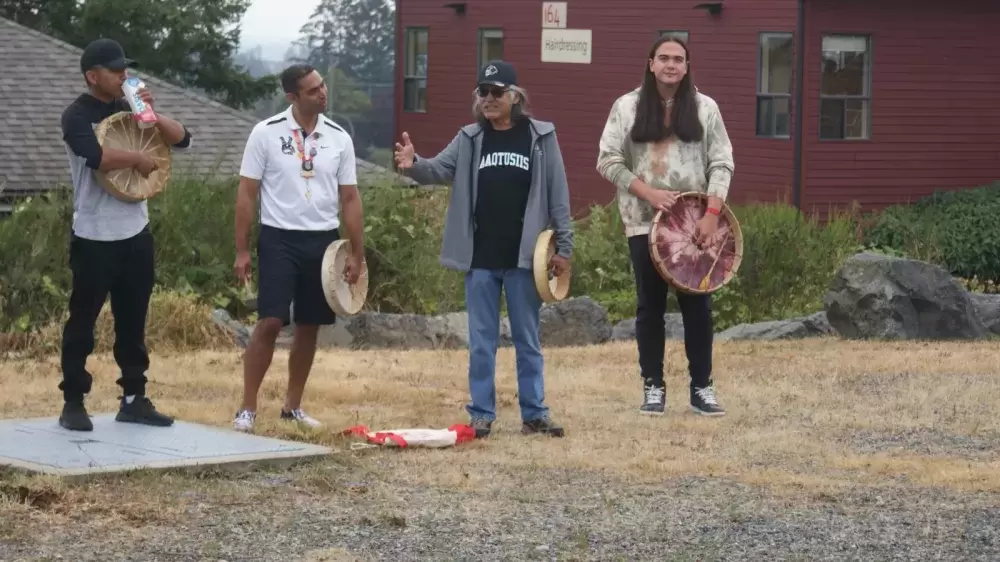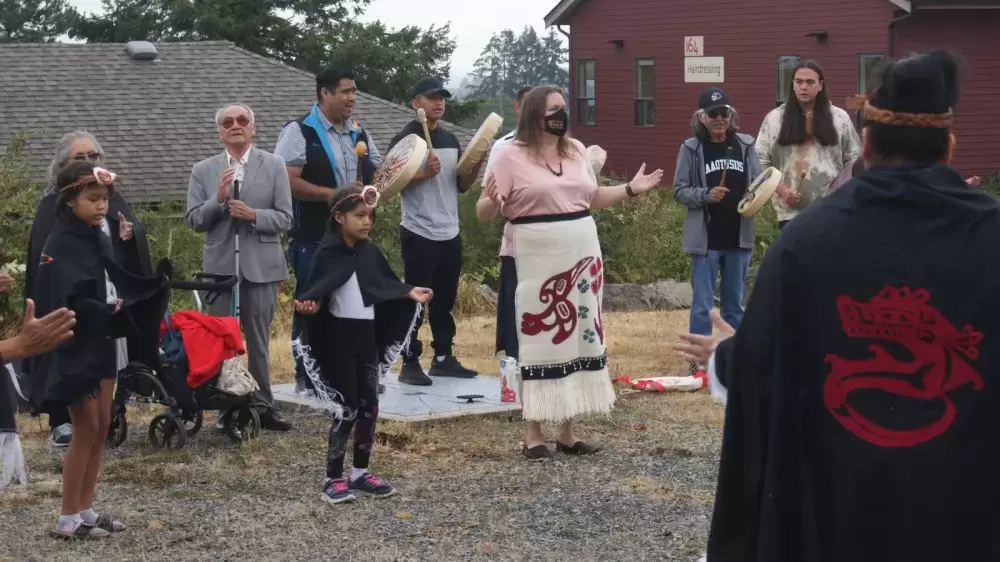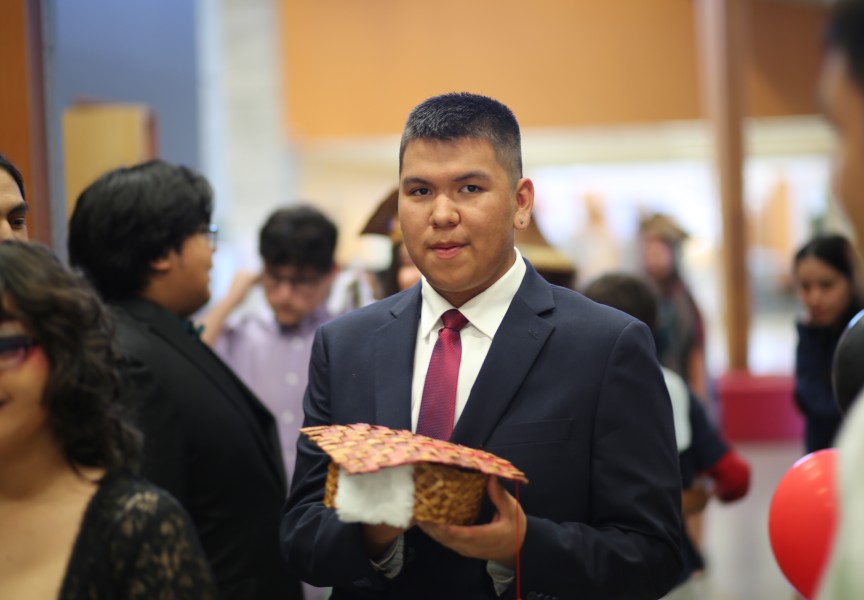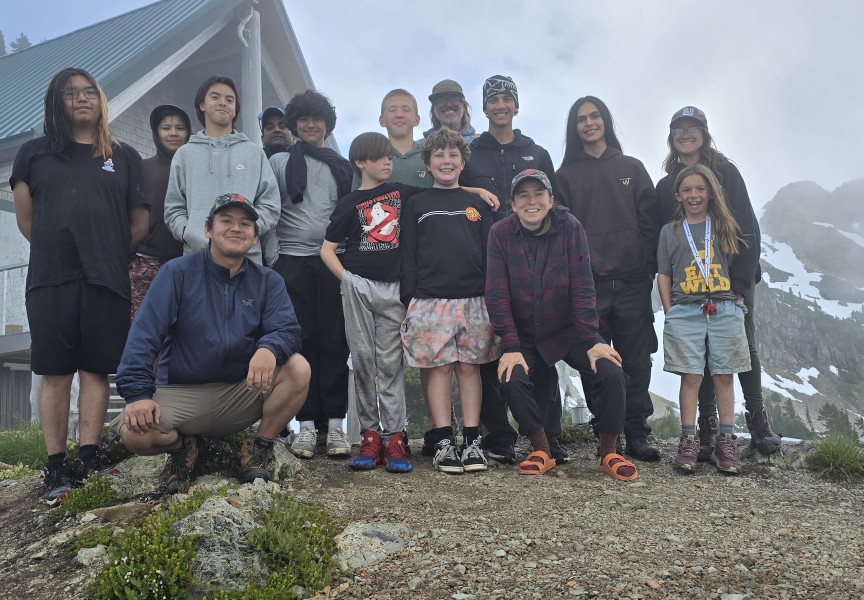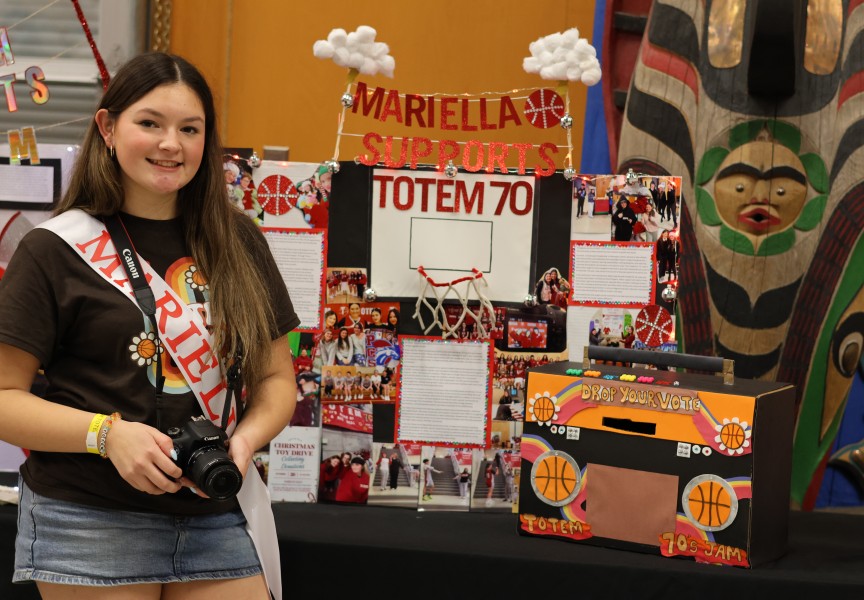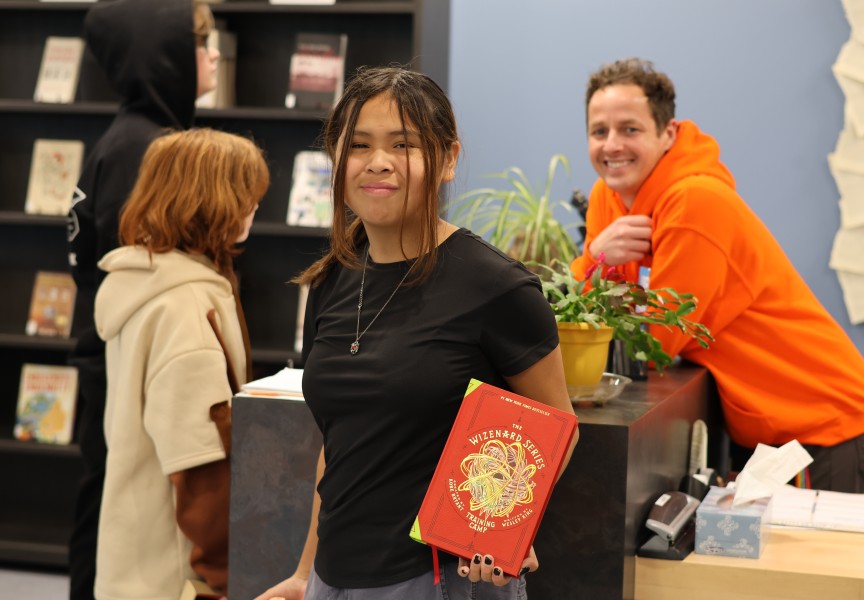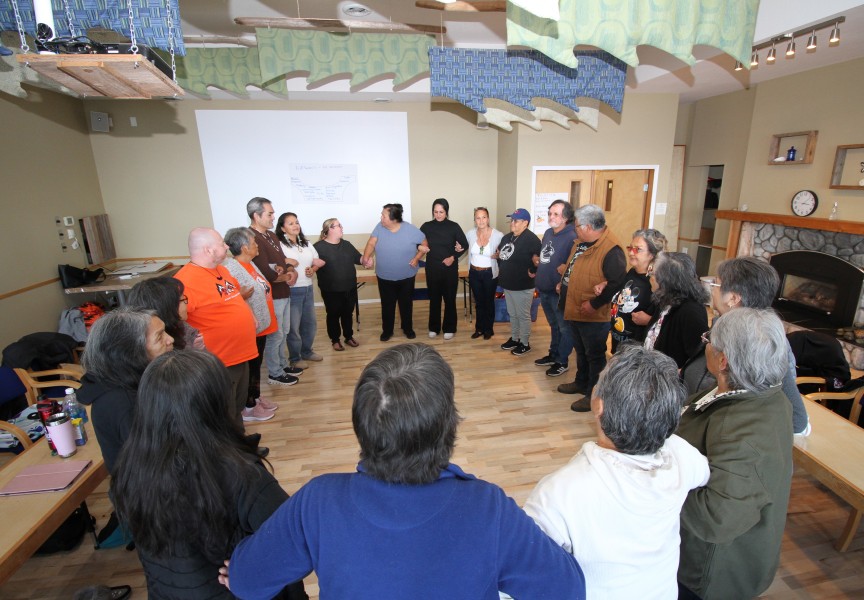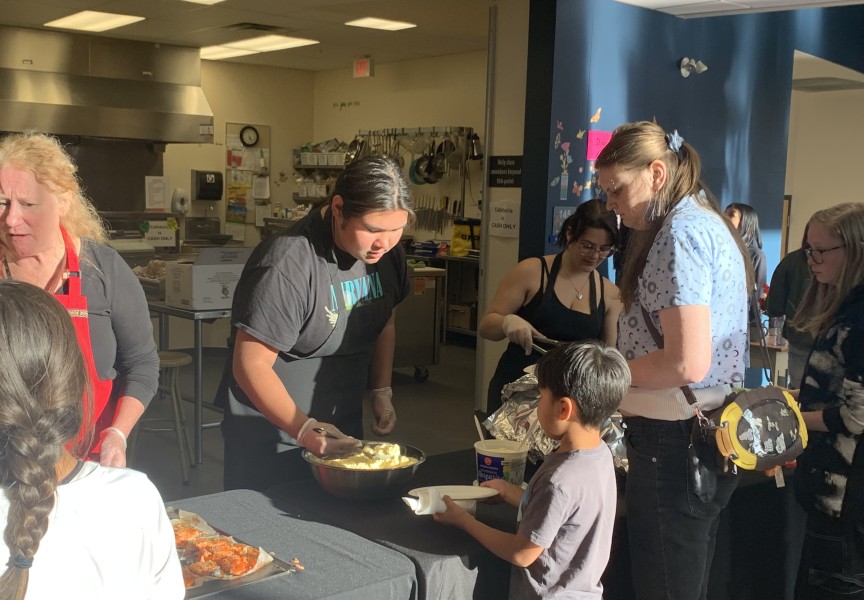Vancouver Island University (VIU) hosted its annual All-Nations feast at the Nanaimo campus yesterday, featuring dancers and speakers from the Nuu-Chah-Nulth, Kwakwaka’wakw, Métis, and Coast Salish, representing all four Indigenous groups from the Island.
Jennifer Christofferson is an Education Advisor in Services for Aboriginal Students, who says that after this many years, organizing the event is like a well-oiled machine.
“We’ve kind of got it down to a seamless thing, because we've traditionally cooked food and stuff. And so, we've actually farmed it out to the Serauxmen so that we actually give a donation and that goes on in kind back to the community,” explained Christofferson. “So that part is easy. And then it's just the logistics of the office of Indigenous Education and Engagement Services for Aboriginal students. We all kind of team together. And we also do outreaches to other people to see if they can help and it really is quite quick.”
The All-Nations Feast serves as a way to highlight the unique cultures seen by the four Nations that live on Vancouver Island, Christofferson says.
“[W]hat we have done here is we brought on an event to showcase those Nations to the institution, to all the students and the faculty,” she said. “To have them come out and to witness some of the traditions and protocols and cultural sharing, so dancing, singing, summer prayers, all those kinds of things so that they can be exposed to different things and know that the nations are different, and there's different language groups on the island.”
The Nuu-Chah-Nulth were first in the lineup, being led by Ahousaht member Wally Samuel speaking on his experiences, before picking up a drum and singing while the dancers danced. At the end of their time, they performed one final dance and invited anyone in attendance to join them. A large contingent of faculty and students did just that, following the lead of the more experienced dancers.
“I just think it's like a really awesome opportunity for people who are not familiar with the nations on the island or even culture traditions, dances, anything like that, because a lot of the groups that we get will actually explain like… this dance is from this person,” said Christofferson. “Recognizing that dances can't just be danced by anybody, that they're specific to families and all that kind of stuff. So I think it's really important for people to recognize the differences in Nations and how that can be.”
Coffee, tea, and bannock were served in the morning before the show started, and the Serauxmen grilled burgers to be ready after the Kwakwaka’wakw finished their segment. And when the whole thing was over, Christofferson was not worried about clean up.
“When it comes to wrap up, we're like, hey, if anyone can help put some chairs away, it really wraps up quite quick,” she said. “We really look at it like it's a potlatch… when we have a potlatch, everybody's hands on deck. So if you're asked to do something, doesn't matter what you are, you get up and you go do it and everything gets done in a timely matter.”

